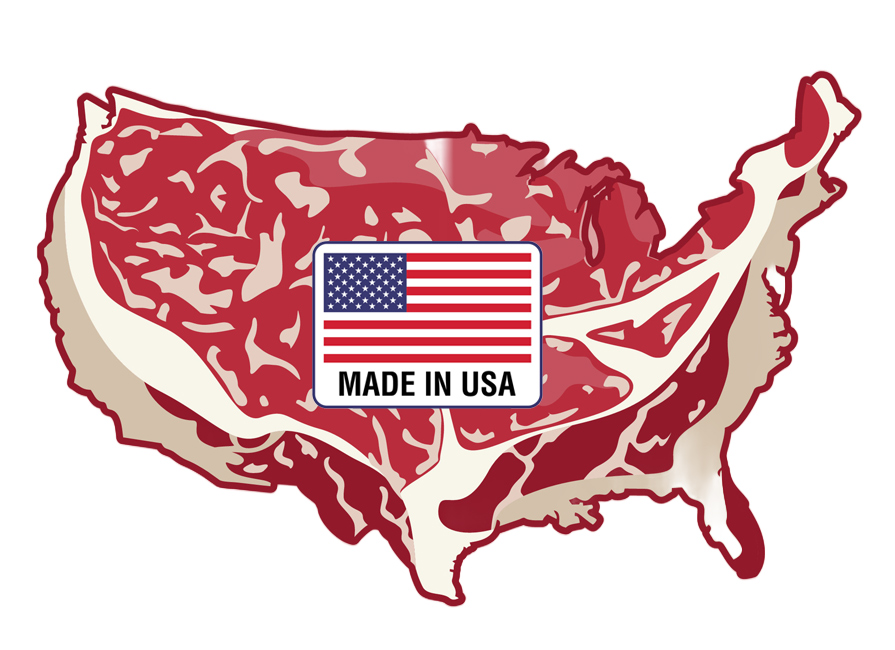In today's increasingly food-conscious world, consumers expect a label to mean what it says—including the…
GM Crops: Further Cause for Concern
When news broke last week that a leading U.S. scientist had written to the U.S. Department of Agriculture (USDA) to warn of a potential new threat linked to Roundup Ready GM crops, it didn’t take long for Monsanto’s PR machine to kick into gear.
Dr. Don Huber – Professor Emeritus of Plant Pathology at Purdue University, West Lafayette, IN, with more than 40 years experience as a plant pathologist – wrote to the USDA in January to call for a delay in the approval of Monsanto’s Roundup Ready Alfalfa. He was concerned about preliminary evidence that he had seen of a new “microscopic pathogen that appears to significantly impact the health of plants, animals, and probably human beings” that could be linked to GM agriculture – and particularly the use of glyphosate herbicide (the active ingredient in Monsanto’s Roundup).
Dr. Huber has studied the use of glyphosate for 20 years and was writing to the USDA in his capacity as a coordinator for the USDA’s National Plant Disease Recovery System, which exists to ensure that a reasonable level of crop production in the U.S. is maintained in the event of a serious plant disease outbreak. After receiving no response or acknowledgment to his letter, it appears that he gave the letter to the Farm and Ranch Freedom Alliance website shortly after the USDA’s decision to deregulate Roundup Ready Alfalfa.
A statement on Monsanto’s website soon appeared, dismissing Dr. Huber’s letter on the basis that “No data was provided nor cited, and no collaborators were identified.” The statement went on to say that a USDA spokesperson whom Monsanto had contacted was “unfamiliar with information or research about the alleged pathogen and was not contacted by Huber regarding the alleged pathogen discovery.” The Monsanto website also stated that “Scientists at Purdue recently provided a response to Huber’s recent claims” and linked to a Purdue Extension paper, entitled Glyphosate’s Impact on Field Crop Production and Disease Development.
So where do we stand now? Well, despite initial rumors that the letter was a hoax, the USDA has now officially confirmed receipt of Dr. Huber’s letter and indicated that it is “under review.” And after reading the Purdue Extension paper, it is somewhat puzzling that the paper does not actually address the key content in Dr. Huber’s recent letter to the USDA. In fact, Dr. Huber is not cited at all and it appears that the primary focus of the paper is to counter two recent anti-GM articles, both of which refer to earlier work by Dr. Huber on glyphosate and plant and animal disease.
The authors of the Purdue paper state that their aim is “to clarify the relationship between glyphosate and plant disease development.” While it does indeed challenge some of the wider claims that Dr. Huber makes in his letter about the impact of glyphosate, the Purdue Extension paper’s conclusions can be broadly described as saying that while there is some evidence of associated problems with widespread Roundup use, the evidence is inconclusive: more research is needed, so until then it’s business as usual.
Of course, the preliminary nature of Dr. Huber’s evidence means that we must not jump to any immediate conclusions. Nevertheless, it is important to point out that Dr. Huber is far from alone in his concerns about the sustainability of cropping systems in which glyphosate is the primary weed management strategy. Indeed, plenty of scientific evidence indicates that the widespread use of glyphosate has an impact on the environment and, potentially, human health. A special issue of the European Journal of Agronomy in 2009 was devoted to the problems associated with the herbicide, including “glyphosate interactions with plant nutrient availability, transfer to and effects on susceptible crops, indirect effects on rhizosphere microorganisms and plant pathogens, and development of glyphosate-resistant weeds.” The Purdue Extension paper states, “The claim that herbicides, such as glyphosate, can make plants more susceptible to disease is not entirely without merit,” although the authors then go on to argue that the assertions that glyphosate is having a widespread effect on plant health are largely unsubstantiated.
Despite early promises that GM farming would reduce the quantity of pesticides used in agriculture, we now know that GM crop regimes have led to an increase in the use of herbicides, such as Roundup. Research shows that Roundup use in the U.S. has increased 15-fold since 1994, when the first herbicide-tolerant GM crops were introduced. As USDA data show that around 90 percent of alfalfa growers in the U.S. do not currently use any herbicide, Dr. Huber’s argument was that the deregulation of Roundup Ready alfalfa would inevitably lead to even more Roundup being used. It was for this reason that Dr. Huber called for a delay on the approval of Roundup Ready Alfalfa, as well as well as access to USDA data so that any “causal/predisposing relationship with glyphosate and/or Roundup Ready plants can be ruled out as a threat to crop and animal production and human health.”
My ongoing concern is whether or not all scientists are being given sufficient access to the right information. We already know that many scientists are unable to carry out truly independent analysis of the potential environmental and food safety impacts of GM crops. In February 2009, more than 25 leading scientists – all working at public research institutions located in 16 corn producing states – issued a public statement to the U.S. Environmental Protection Agency, claiming that the biotech industry use intellectual property rights (IPR) laws to prevent any truly independent scientific testing of their GM products: “As a result of restricted access, no truly independent research can be legally conducted on many critical questions regarding the technology.” A recent article in Scientific American – entitled ”Do seed companies control GM research?” – states that IPR laws mean that while research on GM crops is indeed still published, “only studies that the seed companies have approved ever see the light of a peer-reviewed journal. In a number of cases, experiments that had the implicit go-ahead from the seed company were later blocked from publication because the results were not flattering.” So in my view we need to read the calming words of the Purdue Extension paper in this wider context.
Some commentators are clearly enraged by Dr. Huber’s decision to “go public” without peer reviewed evidence; others are glad this debate is now being held in the public arena. But while Monsanto dismissed Dr. Huber’s letter on the basis that he provides no links to any new scientific evidence, references or data, it is important to note that Dr. Huber does not claim to have concrete scientific proof. His letter clearly states that, based on the preliminary evidence he has seen and his many years experience, “the threat we are facing from this pathogen is unique and of a high risk status.” If he really is that concerned, I cannot see what is wrong with Dr. Huber’s core request for access to necessary data to confirm or negate his concerns. After all, he’s just doing his job.
I believe that Dr. Huber was right to inform others that he had sent the letter. If Dr. Huber’s suspicions have any validity then this is clearly a matter of grave public concern which requires urgent action from the USDA – action which was clearly not forthcoming. Again, it’s fair to say that this incident brings into question the approval process for GM crops, and the ability of independent scientists (and the public) to access the necessary data and to raise possible concerns – and to do so without reprisal. As an article in Nature laments, scientists who suggest that biotech crops might have harmful environmental effects can expect attacks from within the scientific community that “can sometimes be emotional and personal; heated rhetoric that dismisses papers and can even… accuse scientists of misconduct.” Let’s hope we don’t see more of this in the coming weeks.
I hope that future independent scientific research will show that Dr. Huber’s concerns were unnecessary. But the reality is that consecutive U.S. administrations appear hell bent on adopting GM technology at all cost, while commercial interests continue to prevail over truly independent scientific analysis of the environmental and food safety impacts of GM crops. If Dr. Huber had not made the letter public I wonder when the USDA would have responded to his concerns – or if the wider public would have even been informed.



